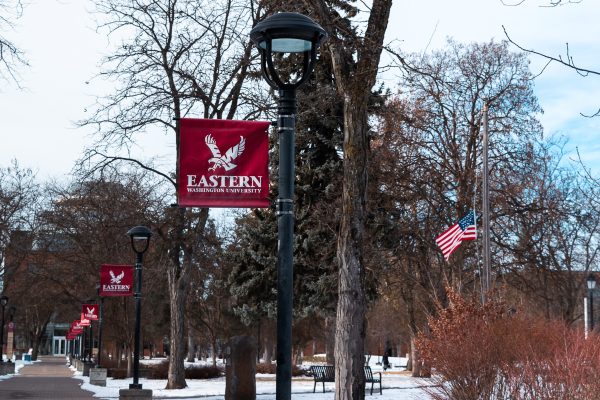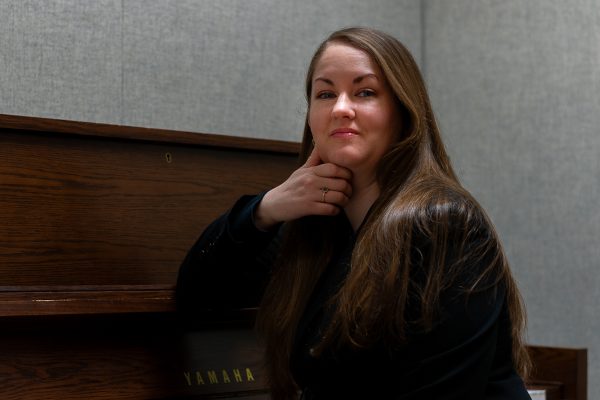Tennessee Poet brings Appalachian poetry to the Pacific Northwest
Jesse Graves hails from Sharp’s Chapel, a small town in Eastern Tennessee about 40 miles north of Knoxville, where his family roots run deep.
January 24, 2018
On January 19, in Auntie’s upstairs reading room in the heart of downtown Spokane, visiting poet Jesse Graves has everyone’s full attention as he recites the poetry for which he is known best. Graves is the Visiting Writer courtesy of EWU’s Get Lit! program, and his knack for haunting Appalachian poetry has all his listeners utterly entranced.
Jesse Graves hails from Sharp’s Chapel, a small town in Eastern Tennessee about 40 miles north of Knoxville, where his family roots run deep. Growing up on a farm in the rural south meant that Graves did not have the typical background of a contemporary poet. To this Graves speaks highly of his mother, a storyteller who gave him the drive to find the poetry in himself, and his father, who has been his role model for diligent work. As a first-generation college student at the University of Tennessee, Graves turned to his childhood and early life for inspiration in his poetry and writing.
As Southern writer Flannery O’Connor said, “Anybody who has survived his childhood has enough information about life to last him the rest of his days.”
After obtaining a bachelor’s in English from the University of Tennessee, Graves went on to get a masters’ in Creative Writing from Cornell and a doctorate in Creative Writing from the University of Tennessee. He now works at East Tennessee State University as an Associate Professor and Poet-in-Residence. Influential poets and authors of Graves are the likes of John Keats, Walt Whitman, Emily Dickinson, Tennessee poet Charles Wright, Polish writer Adam Zagajewski, and Rainer Maria Rilke.
Once described as an Appalachian Gothic, Graves leans on his own experiences of love and loss in his family to bring southern culture and poetry into contemporary America. His ambition is to capture the stories that have been told in his own life as a way of keeping them alive in the present.
“A lot of my poems are about the past,” said Graves. “But it’s really important to engage in the world as it is and the world that we live in now. I think that if there’s a difference between contemporary Appalachian poetry and mainstream American poetry it’s that poets from Appalachia tend to write more narrative poems. There tends to be more of a focus on stories and on people’s voices– how people tell their own stories.”
Graves’ writing process is one of patience and revision. He builds poems like sculptures and has made it his job to continually write and work on what he has. When asked if there was a definitive event that caused him to begin writing poetry, the poet says that there was no such watershed moment, as far as he could remember. Rather-the need for expression had always been there-it just made itself clearer through the carpentry and alchemy of poems.
Graves has published two books thus far, “Tennessee Landscapes with Blighted Pine” and “Basin Ghosts,” both of which are filled to the brim with the recurring theme of haunted landscapes. Not necessarily just the physical characteristics of Appalachia, but also the relationship between man and his environment—the moments that have shaped the human experience. Graves’ third volume, “Specter Mountain,” comes out in March.






![Simmons said the biggest reasons for her success this year were “God, hard work, and trusting [her] coach and what she has planned.”](https://theeasterner.org/wp-content/uploads/2024/05/image1-1-1200x800.jpg)







